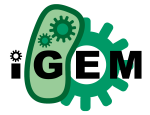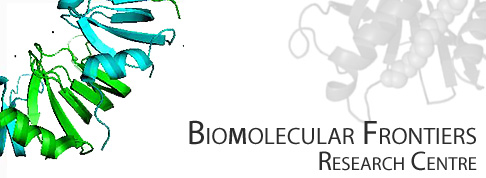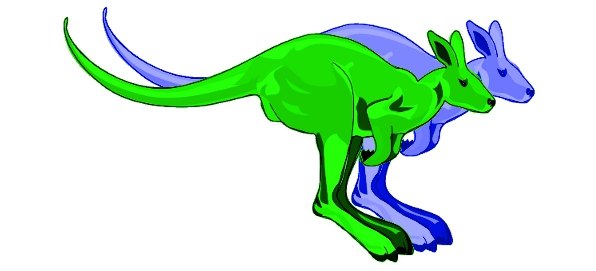Team:Macquarie Australia
From 2011.igem.org
m |
|||
| (187 intermediate revisions not shown) | |||
| Line 2: | Line 2: | ||
| + | <table cellspacing="5" border="0" cellpadding="0"> | ||
| + | <tr valign="top" align="left"> | ||
| + | <td width="200"> | ||
| + | <!--- Left Hand Column ---> | ||
| - | = | + | <br> |
| - | <br> | + | <p> |
| + | |||
| + | [[File:Igem-logo-200px.png|center|link=https://2011.igem.org]] | ||
| + | <br> | ||
| + | <br> | ||
| + | [[File:MQ_200_logo.jpg|center|link=http://www.mq.edu.au]] | ||
| - | |||
</p> | </p> | ||
| + | <br> | ||
| - | < | + | <html><div id="fb-root"></div> |
| + | <script>(function(d, s, id) { | ||
| + | var js, fjs = d.getElementsByTagName(s)[0]; | ||
| + | if (d.getElementById(id)) {return;} | ||
| + | js = d.createElement(s); js.id = id; | ||
| + | js.src = "//connect.facebook.net/en_US/all.js#xfbml=1"; | ||
| + | fjs.parentNode.insertBefore(js, fjs); | ||
| + | }(document, 'script', 'facebook-jssdk'));</script> | ||
| + | |||
| + | <div class="fb-like-box" data-href="http://www.facebook.com/pages/Macquarie-iGEM/128665933893620" data-width="220" data-show-faces="true" data-border-color="#A11F37" data-stream="false" data-header="true"></div> | ||
| + | </html> | ||
| + | |||
| + | <br> | ||
<br> | <br> | ||
| - | + | [[File:Bio-Rad_logo_MQ.PNG|center|200px|link=http://www.bio-rad.com]] | |
| + | |||
| + | <br> | ||
<br> | <br> | ||
| - | + | [[File:Agilent_logo.png|center|200px|link=http://www.home.agilent.com/agilent/home.jspx?cc=AU&lc=eng]] | |
| + | <br> | ||
| + | |||
| + | [[File:Biomolecular-home_banner_2.jpg|center|200px|link=http://www.bmfrc.mq.edu.au/home]] | ||
| + | |||
| + | </td> | ||
| + | |||
| + | <!--- Main Column ---> | ||
| + | |||
| + | <td width="1" bgcolor="#A11F37"><BR></td> | ||
| + | <td width="750" valign="top" align="left"> | ||
| + | <center> | ||
| + | ==Welcome== | ||
| + | </center> | ||
| + | |||
| + | <br> | ||
| + | |||
| + | [[File:Roo2.jpg|center|400px]] | ||
| + | |||
| + | <!-- HTML codes by Quackit.com - hope to see you again soon! --> | ||
| + | <p style="font: 11pt Trebuchet MS">Hello from the 2011 Macquarie University iGEM group! <br><br> This year's research team will be expanding upon the research conducted by last year's iGEM team. This project involves the production of a phytochrome light switch that jumps between two different light states, acting as a reporter for ambient light conditions. We've nicknamed our work 'the switch-a-roo' as our phytochromes hop back and forth between green and blue states.</p> | ||
| - | |||
<br> | <br> | ||
| - | + | ||
| + | <p style="font: 11pt Trebuchet MS"> | ||
| + | |||
| + | Here are some quick links to help you get started: <br><br> | ||
| + | |||
| + | :<html> | ||
| + | <p style="font: 11pt Trebuchet MS"> | ||
| + | <ul> | ||
| + | <li> An overview of our <a href="https://2011.igem.org/Team:Macquarie_Australia/Project">Project</a></li> | ||
<br> | <br> | ||
| - | + | <li> Head on over to our <a href="https://2011.igem.org/Team:Macquarie_Australia/parts">Data Page</a> for a summary of our registered parts </li> | |
<br> | <br> | ||
| - | + | <li> Or meet the <a href="https://2011.igem.org/Team:Macquarie_Australia/Team">Team!</a></li><br> | |
| + | <li>The requirements for each medal grade can be seen at the bottom of this page</a></li> | ||
| + | </ul> | ||
| + | </p> | ||
| + | </p> | ||
| + | </html></p> | ||
| + | |||
<br> | <br> | ||
| - | < | + | <center> |
| + | ==Abstract== | ||
| + | </center> | ||
| + | <br> | ||
| + | |||
| + | <p style="font: 11pt Trebuchet MS"> Phytochromes are ubiquitous proteins that allow an organism to sense light. These proteins have evolved in unique environments to sense light intensity in different colour ranges. This experiment focuses on constructing a biological switch that uses phytochromes from Deinococcus radiodurans and Agrobacterium tumefaciens. The coupling of heme oxygenase supplies our phytochrome proteins with biliverdin, allowing for the self-assembly of the switch within host systems. The switch is the first stage of a two component light sensor and when expressed at high level, there is a noticeable colour change of the cell when it is activated by light.</p> | ||
| + | |||
| + | <br> | ||
| + | <br> | ||
| + | |||
| + | <center> | ||
| + | |||
| + | ==Medal Progress== | ||
| + | |||
| + | <html> | ||
| + | <center> | ||
| + | |||
| + | <div id="requirements"> | ||
| + | <table id="table"> | ||
| + | <tr> | ||
| + | <td class="title"><center>Bronze</td> | ||
| + | <td class="middletitle"><center>Silver</td> | ||
| + | <td class="fartitle"><center>Gold</td> | ||
| + | </tr> | ||
| + | |||
| + | <tr> | ||
| + | |||
| + | <td><center><a href="https://igem.org/Team.cgi?id=646"><img src="https://online.slimmingworld.com/images/registration/packages/tick-bronze.jpg">Registration of Team</a></td> | ||
| + | |||
| + | <td class="middle"><center><a href="https://2011.igem.org/Team:Macquarie_Australia/Characterisation#Characterisation_of_our_Biobrick"><img src="https://online.slimmingworld.com/images/registration/packages/tick-silver.jpg">Characterisation of our working Biobrick</a></td> | ||
| + | |||
| + | <td class="far"><center><a href="https://2011.igem.org/Team:Macquarie_Australia/parts#Improvement_of_previous_BioBrick"><img src="http://secremedia-hosting.co.uk/images/gold-tick.png">Improvement of previous Biobricks | ||
| + | |||
| + | <tr> | ||
| + | |||
| + | <td><center><a href="https://igem.org/2011_Judging_Form?id=646"><img src="https://online.slimmingworld.com/images/registration/packages/tick-bronze.jpg">Judging form</a></td> | ||
| + | |||
| + | <td class="middle"><center><a href="https://2011.igem.org/Team:Macquarie_Australia/parts"><img src="https://online.slimmingworld.com/images/registration/packages/tick-silver.jpg">Information entered onto Main Page of Registry </a></td> | ||
| + | |||
| + | </tr> | ||
| + | |||
| + | |||
| + | <tr> | ||
| + | |||
| + | <td><center><img src="https://online.slimmingworld.com/images/registration/packages/tick-bronze.jpg">Project wiki</td> | ||
| + | <td class="middle"></td> </tr> | ||
| + | |||
| + | |||
| + | <tr> | ||
| + | <td><center><img src="https://online.slimmingworld.com/images/registration/packages/tick-bronze.jpg">Poster and Talk for Asia Jamboree</td> | ||
| + | </tr> | ||
| + | |||
| + | <tr> | ||
| + | |||
| + | <td><center><a href="https://2011.igem.org/Team:Macquarie_Australia/parts"><img src="https://online.slimmingworld.com/images/registration/packages/tick-bronze.jpg">Submission of parts to Registry</td></tr> | ||
| + | |||
| + | <tr> | ||
| + | <td><center><a href="http://partsregistry.org/wiki/index.php?title=Part:BBa_K646000"><img src="https://online.slimmingworld.com/images/registration/packages/tick-bronze.jpg">Submission of Biobrick to Registry</td> | ||
| + | |||
| + | </tr> | ||
| + | </tr> | ||
| + | </table> | ||
| + | </html> | ||
| + | |||
| + | <br> | ||
<html> | <html> | ||
<body> | <body> | ||
| - | <div id=" | + | <div id="banner1" style="text-align: center;"> |
| + | <a href="https://2011.igem.org/Team:Macquarie_Australia"><img src="https://static.igem.org/mediawiki/2011/4/4a/Sponsor_logo_mq.gif" width="450" ></a> | ||
| + | </div> | ||
| + | </div> | ||
</body> | </body> | ||
| + | </html> | ||
Latest revision as of 02:08, 5 October 2011
|
|
Welcome
Hello from the 2011 Macquarie University iGEM group!
Here are some quick links to help you get started: Abstract
Phytochromes are ubiquitous proteins that allow an organism to sense light. These proteins have evolved in unique environments to sense light intensity in different colour ranges. This experiment focuses on constructing a biological switch that uses phytochromes from Deinococcus radiodurans and Agrobacterium tumefaciens. The coupling of heme oxygenase supplies our phytochrome proteins with biliverdin, allowing for the self-assembly of the switch within host systems. The switch is the first stage of a two component light sensor and when expressed at high level, there is a noticeable colour change of the cell when it is activated by light.
Medal Progress
|
 "
"







 Registration of Team
Registration of Team Characterisation of our working Biobrick
Characterisation of our working Biobrick Improvement of previous Biobricks
Improvement of previous Biobricks
